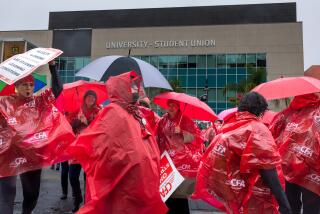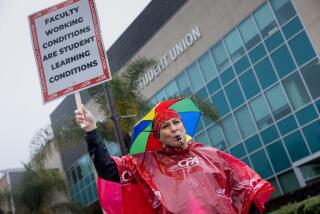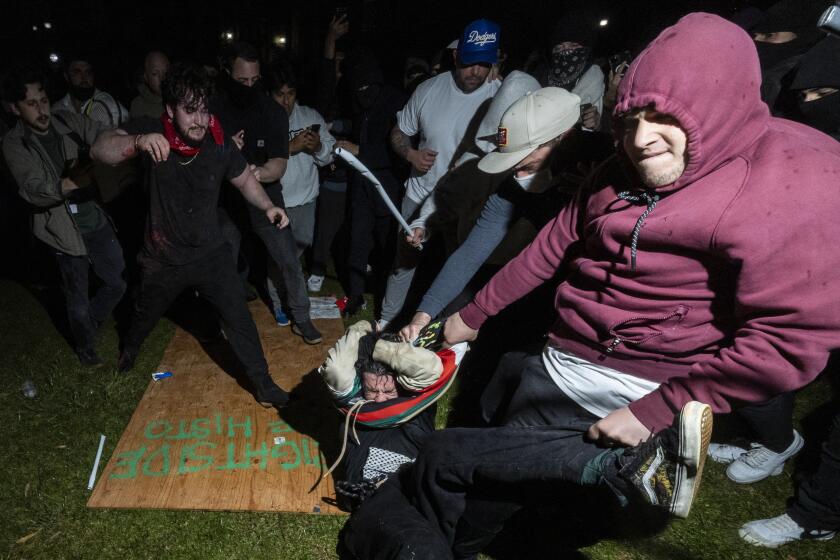Readers React: The plight of USC’s overworked, non-tenure-track faculty
To the editor: So, undergraduate students at USC are charged more than $49,000 in tuition to take classes from a faculty that is almost three-quarters overworked, underpaid temps? (“As USC faculty awaits results of a union vote, some hope for ‘a bigger voice,’” Feb. 1)
An alumna, I will keep this in mind when young people ask if I recommend applying to USC.
Carolyn Seeman, Valley Village
..
To the editor: The USC described in The Times’ article bears no resemblance to the school at which I was a non-tenure track lecturer from 2002-13.
A six-course load earned me almost $80,000 (without a missed paycheck), was for 34 weeks of work, gave me the same health benefits as tenure-track faculty and got me teacher assistants and graders to help. It’s true that I taught in the Viterbi School of Engineering, but it’s hard to imagine things are that much different in the Dornsife College of Letters, Arts and Sciences or the Roski School of Art and Design.
It’s true that non-tenure-track faculty are second-class citizens, but complaining about it is like bemoaning the fact that you’re a member of the upper-middle class.
David Wilczynski, Manhattan Beach
..
To the editor: Full-time faculty at private universities do not have unions because a 1980 U.S. Supreme Court case effectively bans them. The ban does not apply to part-time faculty.
Current efforts by part-time faculty nationally to seek collective bargaining at private universities may open the door to reconsideration of the 1980 case. A recent National Labor Relations Board decision involving full-time but contingent faculty at Pacific Lutheran University points in that direction.
It’s misleading to say that unions are common at public universities because, allegedly, they wield “political pressure.” If full-time private faculty had the right to bargain, unions might become more popular there too.
For the record, full-time faculty at the University of California do not engage in collective bargaining at this time.
Sanford Jacoby, Los Angeles
The writer is an economic historian and labor economist at UCLA.
Follow the Opinion section on Twitter @latimesopinion and Facebook
More to Read
A cure for the common opinion
Get thought-provoking perspectives with our weekly newsletter.
You may occasionally receive promotional content from the Los Angeles Times.






